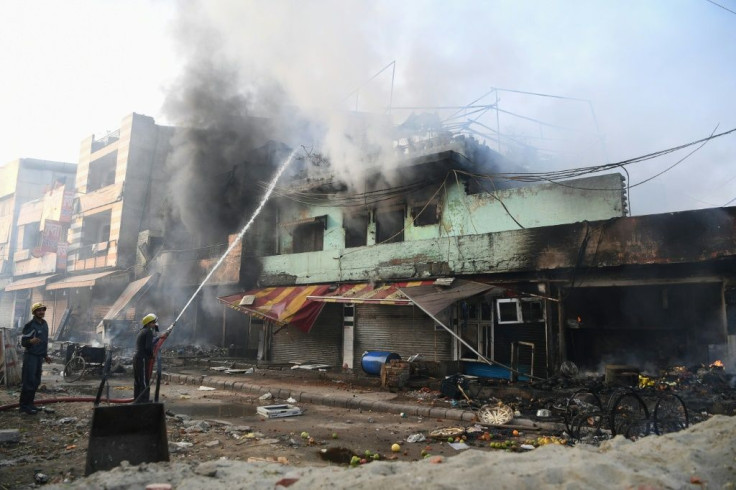Policeman Killed In Delhi Clash Ahead Of Trump Arrival
A policeman was killed in New Delhi on Monday during violent clashes over a contentious citizenship law, hours before US President Donald Trump arrived in the Indian capital as part of a two-day visit.
Protests have broken out across India since the law, that critics say discriminates against Muslims, came into force in December. At least 30 people have been killed in clashes with police.
The new law has raised worries abroad -- including in Washington -- that Prime Minister Narendra Modi wants to remould secular India into a Hindu nation while marginalising the country's 200 million Muslims, a claim he denies.
The latest unrest erupted between several hundred supporters and opponents of the law in a Muslim-dominated area of northeast Delhi on Sunday, and continued on Monday.
A constable died after receiving a critical head injury, while another senior officer was injured.
"Please renounce violence. Nobody benefits from this. All problems will be solved by peace," Delhi's Chief Minister Arvind Kejriwal tweeted.

Deputy Chief Minister Manish Sisodia tweeted that schools in the capital' northeast would be shut on Tuesday and exams postponed.
Protesters torched at least two houses and shops, the Press Trust of India said. Local TV channels showed plumes of black smoke billowing from buildings.
One video posted on social media showed crowds of men shouting "Jai Shree Ram" or "Hail Lord Ram", a revered Hindu deity, as they went on a rampage.
Trump arrived in the western state of Gujarat on Monday and addressed about 100,000 people at a rally with Modi before he visited the Taj Mahal monument in Agra.
The US president arrived in Delhi late Monday before official talks in the city on Tuesday.
A senior US official told reporters that Trump would raise concerns about religious freedom in the Hindu-majority nation during the trip, calling them "extremely important to this administration".
© Copyright AFP 2024. All rights reserved.











